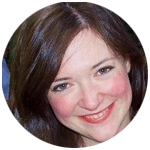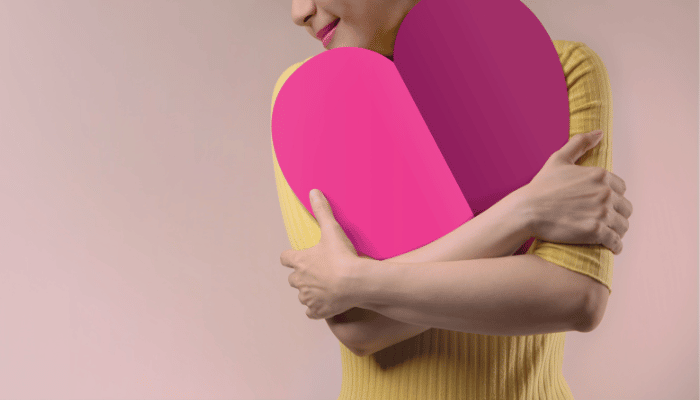“There’s a difference between thinking you deserve to be happy and knowing that you are worthy of being happy. Your being alive makes worthiness your birthright. You alone are enough.”
—Oprah Winfrey
Have you ever experienced that feeling when you walk into a room or talk to someone, and you lose all sense of confidence you ever thought you had? I sure did. I always wanted to just shrink and have no one even look in my direction. This profound sense of inferiority dominated my life until I began my Certificate in Wholebeing Positive Psychology.
I joined the program mainly for professional development. Being a clinical social worker, I thought it would help me gain more tools to help me in my work. Not surprisingly, it turned into one of the most powerful experiences of my life.
Inferiority, driven by constant self-criticism, had caused me to live a life I desperately wanted out of. After finishing graduate school, I had settled into a life of perceived monotony that drove my feelings of inferiority every minute of the day. Somehow, I had created a working life that mirrored what I always told myself I deserved—a place where I was not valued and never felt like I belonged—but I was comfortable in it because I knew how to handle those feelings.
One day, while driving home from work, I unexpectedly flew into a rage because another driver would not let me merge lanes. After screaming at them and hitting my steering wheel repeatedly, I began crying so intensely that I had to pull over. It was at that moment that I realized that something had to change, but I did not have any idea how to begin. A few months later, a coworker shared with me a book about compassion, and suddenly I felt like I had found a lifeline. That book spurred me to register for a conference on the topic that ultimately led me to Wholebeing Institute.
Self-criticism often stems from times when we feel humiliated, inadequate, or like a failure. In my case, those emotions came from many years of being bullied about my weight. The cruel words from peers at school became a daily reminder of my inferiority and helped create my lack of self-worth. Each school year, there seemed to be a group of kids who made it their mission to torment me. The most painful experience came in eighth grade when I was 13 years old. A group of girls decided that I looked like a buffalo. For that whole year, they followed me around the school yelling “Buffalo” for everyone to hear. That was one of the most powerful reinforcements of shame about myself and my body that I have ever experienced.
Fast forward a few years and we all grew up a bit. I excelled academically, lost weight, and the bullying stopped. However, the damage was done. They had taught me everything I needed in order to continue for myself what they had started. I had turned into my own bully. Their hurtful words shaped my image of myself and contributed to me becoming people-pleasing, perfectionistic, and risk-averse.
But there was a silver lining: Those experiences also caused me to be empathetic, giving, and caring to nearly everyone I meet. Furthermore, it led me into social work, practicing in hospitals, community mental health, and inpatient/intensive outpatient programs, and currently as a school social worker.
My work has played a big part in my healing, and therapy helped me to understand and find the purpose in the experience. But no matter what I tried, I could never alter the negative voice in my mind criticizing my every move or action; reminding me that I was never good enough to be among the company I was in. I felt inferior to everyone. My self-critic spoke up for anything and everything.
Through the study of self-compassion, I started to realize that if I speak to myself as an enemy, I will never be able to create the life I want. I first came across the concept of self-compassion in my Master of Social Work program, but it didn’t truly sink in until I began CiWPP and read Kristin Neff’s book Self-Compassion. This time, the idea resonated with me in a way I had never experienced before. During my time in CiWPP, I began putting this concept into practice in my life.
The support of the other CiWPP students was a key factor for me as I worked to build my self-worth and challenge the negative thoughts. This was where the power of being in a group of people learning about positive psychology came into play for me. There was an energy and openness that grew out of being among people who were all seeking to make changes in their lives. It helped me to understand that I was not in this difficult place alone. I felt accepted, without question or judgment.
One day, after about six months of practice, my self-critical brain was doing its thing on my way to work. Suddenly I just naturally and gently told myself, You are okay. Let me tell you, I nearly fell over! I asked myself, Where in the world did that come from?! I laughed out loud. It was so shocking to experience something so powerful AND be aware of it. It was a wholly new experience.
That moment was the spark that began a gradual shift in my natural thoughts. Since then, the cruel voice has become less and less powerful. It’s still there at times and gets stronger when I feel overwhelmed, stressed, or sidetracked from my healthy habits. But I know my thoughts are just thoughts, not the truth as I once believed. Most days, instead of assuming those thoughts assume they must be true, I choose to use the strategies I learned through CiWPP to meet those critical words with self-compassion.
Find out about the Certificate in Positive Psychology, starting March 27.
This post was adapted from Finding Unshakable Happiness, a collection of essays from WBI graduates collected by Donna Martire Miller.

Erin Crosby
Erin Crosby is a Licensed Clinical Social Worker who specializes in helping women of all ages regain or develop their confidence and feel empowered in their lives. She earned a Master of Research in Psychology from the University of St Andrews in Scotland and a Master of Social Work from the University of Pennsylvania. Erin completed her Certificate in Wholebeing Positive Psychology in 2017.


